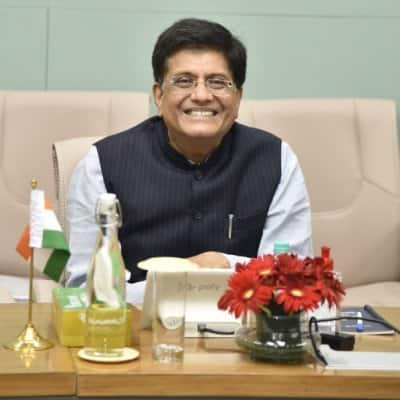RCEP Negotiation Under Previous Govt Would've Been Death Of Manufacturing And Other Sectors: Piyush Goyal
RCEP included China, Japan, South Korea, Australia, New Zealand, and ASEAN. India pulled out of the trade agreement as negotiations failed to address its core concerns

The Regional Comprehensive Economic Partnership (RCEP) under the previous government would have been the death knell of manufacturing and several other sectors in India, said the Union Commerce Minister Piyush Goyal on Thursday. He was speaking to the press on the occasion of the India-Australia ECTA’s entry into force.
Speaking in Mumbai, he said, “In 2012-13 India decided to get into RCEP negotiation under previous govt. It would've been death knell of manufacturing & several other sectors in India. We would have thrown Indian industry to unfair competition from non-transparent economy like China.”
He said that walking out of RCEP was one of the most prudent and economically wise decision that India could take and the world recognised and appreciate this decision as being in the best interest of India and the people of India.
The new India- Australia ECTA which comes into force today, Goyal said reflects the deep understanding between the two countries. The Australian Govt was very sensitive, considerate, and cooperated with us fully throughout the negotiations.
Goyal said, “The Ind-Aus Economic Cooperation and Trade Agreement was finalised in 88 days, the same time taken for the India-UAE trade agreement.”
India walked out of the Regional Comprehensive Economic Partnership (RCEP) in 2019. RCEP included China, Japan, South Korea, Australia, New Zealand, and the 10 members of the Association of Southeast Asian Nations (ASEAN). India pulled out of the trade agreement as negotiations failed to address its core concerns.
Some in the Indian industry feared that reduced customs duty would result in a flood of imports, especially from China which has a massive trade deficit. India’s trade deficit with other RCEP countries was also rising.
In the new Trade agreement, Australia is offering zero-duty access to India for about 96.4 per cent of exports (by value) from day one. This covers many products that currently attract 4-5 per cent customs duty in Australia. The agreement, which was signed on April 2, would provide duty-free access to Indian exporters of over 6,000 broad sectors, including textiles, leather, furniture, jewellery, and machinery in the Australian market.
Related Video
Union Budget 2025: Arvind Kejriwal lists the shortcomings of the Modi government's budget | ABP News | AAP





































